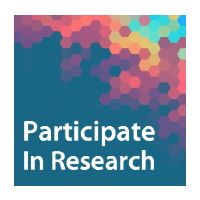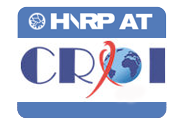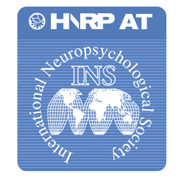Resources Offered
Scientific, intellectual, and coordinating resources provided by the HNRP
The HNRP accomplishes its objectives through the collaborative efforts of investigators and staff from multiple departments at UC San Diego who are expert in various scientific and operational aspects of research. Core areas of scientific expertise include neuropsychology, psychiatry, infectious disease, neurology, pharmacology and statistics. HNRP has developed collaborations across other disciplines that are brought in as needed for the aims of individual studies including imaging, virology, pathology, microbiome, and genetics. The HNRP team has over 30 years of experience facilitating scientific objectives through key resources and infrastructure, including data and information management, research participant accrual and retention, biological specimen repositories/banking, training and quality assurance, study coordination, statistical support and administrative coordination. These resources exist across programs and are described individually below.
To access these resources contact This email address is being protected from spambots. You need JavaScript enabled to view it..
Data Management and Information Systems Resources
The Data Management and Information Systems (DMIS) Unit provides HNRP investigators and staff with a state-of-the-art web-based data management and reporting systems, and both the hardware and software for collaborative research and communication.
Participant Accrual and Retention Resources
The Participant Accrual and Retention (PAR) Resource Group provides consultation and technical support to Investigators who are seeking relevant, hard-to-reach and/or well-characterized research subjects. The resource group assists Investigators in rapidly and efficiently initiating studies and in successfully meeting subject recruitment goals. The group provides consultation and study design to enhance efficient resource utilization. Through technical support, the group works to ensure the overall quality of the participant’s research experience and provides Investigators with a mechanism to provide feedback regarding study findings to participants and to the local communities. Finally, the resource group works with Investigators to monitor human subjects regulatory requirements and ensure compliance.
Neuromedical Resources
The Neuromedical Resource Group (NMRG) serves as a resource to HNRP’s associated studies and collaborating investigators. It provides comprehensive clinical and laboratory evaluations as well as scientific consultation, training, and community education in NeuroHIV. The HNRP’s collaborating investigators find data coordinated through the NMRG (e.g. antiretroviral (ARV) treatment information, HIV disease staging information) to be essential for their data analyses and publications. By assisting investigators in widely diverging disciplines at all levels of project development, the NMRG encourages the application of multiple scientific perspectives and stimulates interdisciplinary collaboration, coordination and dissemination of results.
Neurobehavioral Resources
The Neurobehavioral Group provides all HNRP-affiliated studies detailed characterizations of each cohorts’ neuropsychological, psychiatric and everyday functioning status by administering a comprehensive battery of well-validated, standardized measures of neurocognitive functioning, psychiatric, mood and substance use disorders as well as assessments of everyday functioning (e.g., successfully managing medication regimens and finances). The Neurobehavioral Group provides demographically adjusted individual, cognitive domain specific and global summary scores for all HNRP investigators. Current and lifetime histories of substance use and mood diagnoses are provided as well. The Neurobehavioral Group also offers training, consultation, certification and career mentoring opportunities to a host of investigators and trainees associated with local, national and international NeuroHIV studies. Of note, the Neurobehavioral Group continues to focus its efforts on innovative studies examining the presumed interaction between aging and HIV infection, cognitive abnormalities in early and acute HIV infection, and the effects of antiretroviral treatment on HIV-Associated Neurocognitive Disorders (HAND). Ultimately, the Neurobehavioral Group illuminates the public health relevance of the HNRP both by making available critical information on the neurocognitive, psychiatric, substance use and everyday functioning characteristics of those living with HIV, and by training and mentoring the next generation of NeuroHIV investigators in the analysis and interpretation of neurobehavioral data.
Neuroimaging Resources
The Neuroimaging Resource Group provides consultation and technical guidance to individuals interested in developing pilot studies, working towards new initiatives, and modifying and managing existing neuroimaging studies. Domain expertise spans sMRI, MRS, CSI, DTI, SWI, ASL, fMRI, and PET imaging through Core personnel and the Neuroimaging Interest Group, which includes numerous highly integrated communities. For high-risk individual cases, the NI Core provides morphometric, CSI, DTI, and SWI, and, on a subset, PET PIB imaging. These volumes and derived data are available for cross-core studies; for interested individuals to further pilot hypotheses; and for multi-modal data integration, methods development and validation.
Neurovirology Resources
Neurovirology Resources are coordinated by the HIV Neurobehavioral Research Center.
Neurobiology Resources
Neurobiology Resources are coordinated by the HIV Neurobehavioral Research Center.
Non-Human Animal Models Resources
Non-Human Animal Models Resources are coordinated by the Translational Methamphetamine Research Center.
Statistics Resources
The Statistics Resource Group (SRG) provides statistical assistance to researchers, trainees, faculty, and staff participating in HNRP-related research. Members of the group collaborate with investigators on study projects at all stages of the research process, including hypothesis-generation, grant-writing, sample size justifications, and development of data analysis plans. Statisticians not only analyze data with known methods but also develop, program, and implement novel statistical procedures. The Statistics Group continues involvement in a study throughout the publication and presentation of findings and is dedicated to collaborative partnerships with and education of involved investigators, trainees, and staff.
Physical Resources
The HNRP is located on the UCSD Medical Center – Hillcrest Campus in multiple adjacent facilities. The primary location is 220 Dickinson Street, San Diego, California 92103, where the HNCRP-CMCR shares space in a 36,000 square foot 3-story building with the UCSD Antiviral Research Center (AVRC) and where the majority of HNRP research evaluations take place.
The HNRP occupies approximately 18,000 square feet of space in this building. Approximately 20% of this space is utilized for direct study participant contact and includes a reception area, staff offices, six neurobehavioral examination rooms, five neuromedical examination rooms, a blood draw room, screening room, and specimen processing laboratory. The facility also has a number of specialized rooms, including 2 negative pressure rooms supporting studies of inhaled cannabis, and a dedicated driving simulator room for examining the real-world impact of cannabis and various neurologic conditions. The HNRP’s participant facing facilities were designed to be welcoming for all members of the community and comfortable; Our study assessments are lengthy (often a full day), and complex requiring that our space be designed to allow participants to move comfortably from room to room with ample privacy for completing questionnaires collecting highly sensitive and personal information. Study participants have access to free parking located close to the building and the building is easily navigable.
This building has three conference rooms with state-of-the-art audio-visual and videoconferencing capabilities. In addition, there is a server room, secure file room, and common area with photocopier, fax machine, and staff mailboxes. The HNRP facility supports most research activities, and also provides a modest amount of flexible space for trainees, junior scientists, and space to conduct pilot studies using human subjects.
Dedicated laboratory space and the biospecimen repository are located within close proximity. The HNRP laboratory space is comprised of approximately 2,070 square foot of web lab space dedicated to several functions. This includes approximately 250 square feet dedicated to tissue sample preparation, in support of the aims of California NeuroHIV Tissue Network (CNTN) and National NeuroHIV Tissue Networks (NNTC), which are to serve as a national resource for access to tissues from individuals with HIV who are deceased and had detailed ante-mortem and post-mortem characterization. There is a 420 square foot laboratory used for specimen processing. Another 840 square feet are dedicated to specialized research biomarker assays. In addition, there is a 110 square foot cold room and 450 square feet for laboratory staff offices. The biospecimen repository is approximately 2,00 square feet. This facility has room to accommodate up to 50 freezers and is shared with the AVRC . The biospecimen repository has a dedicated HVAC system that creates a cool ambient temperature and reduces the load on the individual freezers, a monitoring system that monitors the temperature of each freezer and a back-up generator that keeps the facility powered in the event of an outage. This is a highly secured space with key card access limited to select staff members.
Please note that some of our resources are housed outside of the central HNRP facility. These include the Neuroimaging Resources, the Neurobiology Resources, and Neurovirology Resources. These resource groups require specialized laboratory facilities and are co-located with existing complementary laboratories at the UCSD School of Medicine, La Jolla campus as well as the UCSD Clinical Teaching Facility, UCSD Medical Center - Hillcrest Campus.








